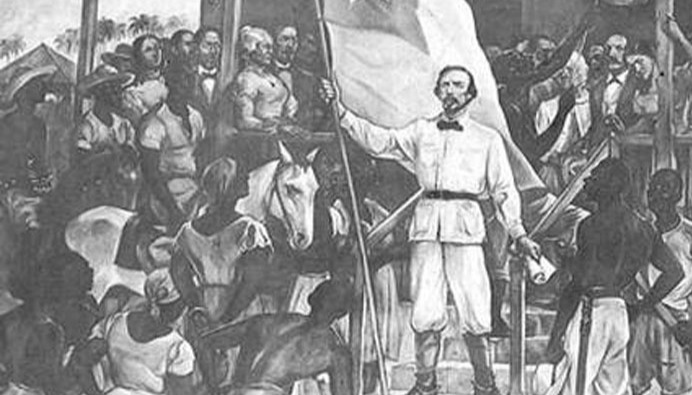
Carlos Manuel de Céspedes made the decision to start the war, gave his slaves their freedom and invited them to fight for a free Cuba. (Photo: PL archive)
Havana, October 10 (RHC)-- The Cuban people remember the armed uprising of October 10, 1868, which marked the beginning of the independence process against Spain in the Caribbean country.
The president of the Cuban History Institute, Yoel Cordoví, commented in an interview with the Prensa Latina news agency that this event posed for the first time that only the armed struggle could resolve the contradictions between the colony and the metropolis.
"Thus an emancipatory process is born, which is in favor of the abolition of slavery and which helps to forge an idea of a great Homeland," he said.
Carlos Manuel de Céspedes (1819-1874), who headed a group of conspirators in Manzanillo (Oriente), made the decision to start the war, gave his slaves their freedom and invited them to fight for a free Cuba.
Historical data reflect that on that date the slave population amounted to more than 300,000 men and women, more than 70 percent of whom were in the western region.
Cordoví explained that after the October 10 Clarinata, other uprisings occurred in Camagüey (1868) and Las Villas (1869).
"In the west there were some uprisings, but the presence of the fundamentalist sector, the rapprochement with the political-administrative center of Spain and the location of large slave plantations hindered a radical pronouncement," he said.
The president of the Cuban History Institute pointed out that the experiences captured during the following 10 years influenced to achieve a national conception of the war with the invasion from east to west in 1895.
According to historian Fabio Fernández, the intensification of the contradictions between the colony and the metropolis, the economic exploitation, the limitation of political rights and the problems of slavery were factors that led to the outbreak.
The professor of the University of Havana explained to Prensa Latina that other international elements influenced the beginning of the war. Fernández considered that the date of October 10 is rooted in the imaginary of the inhabitants of Cuba and is part of the network of symbolic representations that define their people.

